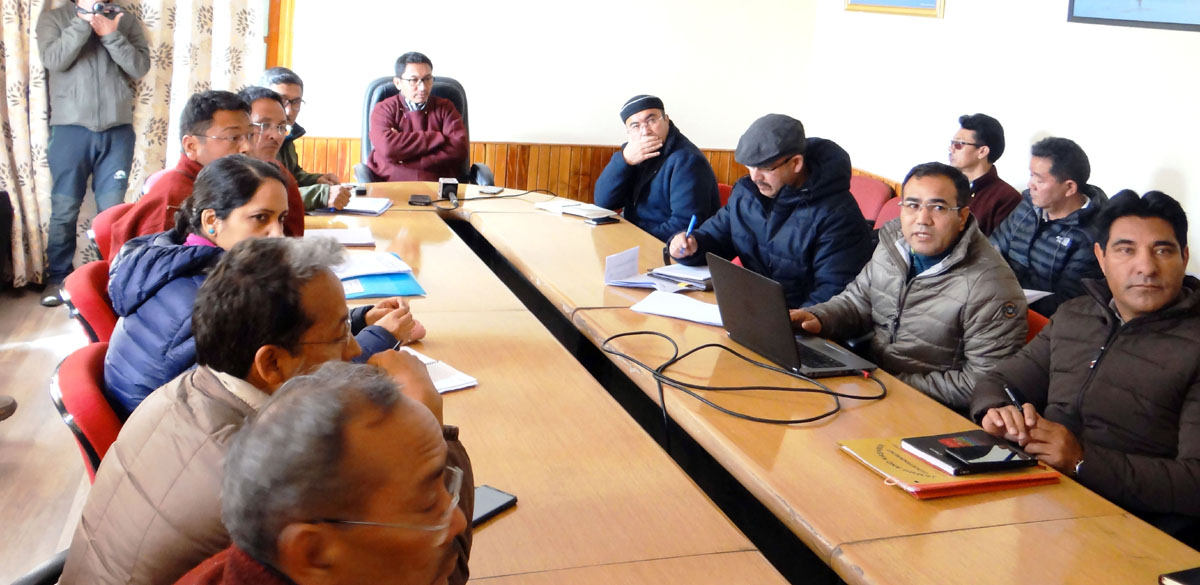Excelsior Correspondent
LEH, Feb 18: To discuss and finalize Ladakh Organic Mission document of LAHDC, Leh, a meeting of all the stakeholders was held here under the chairmanship of Chairman and Chief Executive Councilor, LAHDC, Leh Jamyang Tsering Namgyal.
The purpose of the meeting was to invite more feedbacks and suggestions to fine-tune the Action Plan prepared by Study Committee of Hill Council Leh comprising of Dr Stoban Scientist DIHAR, Leh and Thinles Dawa Assistant Soil Chemist, Agriculture Department, Leh.
The meeting was attended by Executive Councilor for Agriculture Phuntsog Stanzin, Additional District Development Commissioner, Leh Moses Kunzang, Sonam Wangchuk President SECMOL, HODs of all the allied departments including Agriculture, Horticulture, Animal, Sheep, DIHAR, SKAUST, NRIS, CAZRI and representatives of different NGOs connected with agriculture sector in Leh.
Addressing the meeting, CEC JTN said that since couple of years present Council is striding hard to devise a roadmap to lead Leh district towards sustainable and organic farming and urged upon all the stakeholders of Leh to give their valuable feedbacks and suggestions to make the organic policy of LAHDC, Leh more inclusive and practicable.
He said that after compiling all the relent data a policy document will be finalized which will be adopted by LAHDC, Leh with the unanimous consensus of all the members of Hill Council Leh by convening a special General Council Meeting shortly.
Dr Stoban Scientist DIHAR gave a detailed power point presentation highlighting overview of the agriculture sector in Leh district as per baseline data and after studying the policy documents of Bhutan, Sikkim, Himachal, Karnataka and Kerala.
The Study Committee proposed to implement the organic mission target in three phases. In first phase, 33 villages are identified which are not using chemical fertilizers and pesticides during last three years or more will be given top priority for organic incentives in 2019. The second phase will start in 2021 for which 40 villages are identified which are using chemical fertilizers and pesticides less than 5 MT /year and in third phase again 33 villages are identified in which chemical fertilizers use is above 5 MT/year and will be implemented in 2024.


